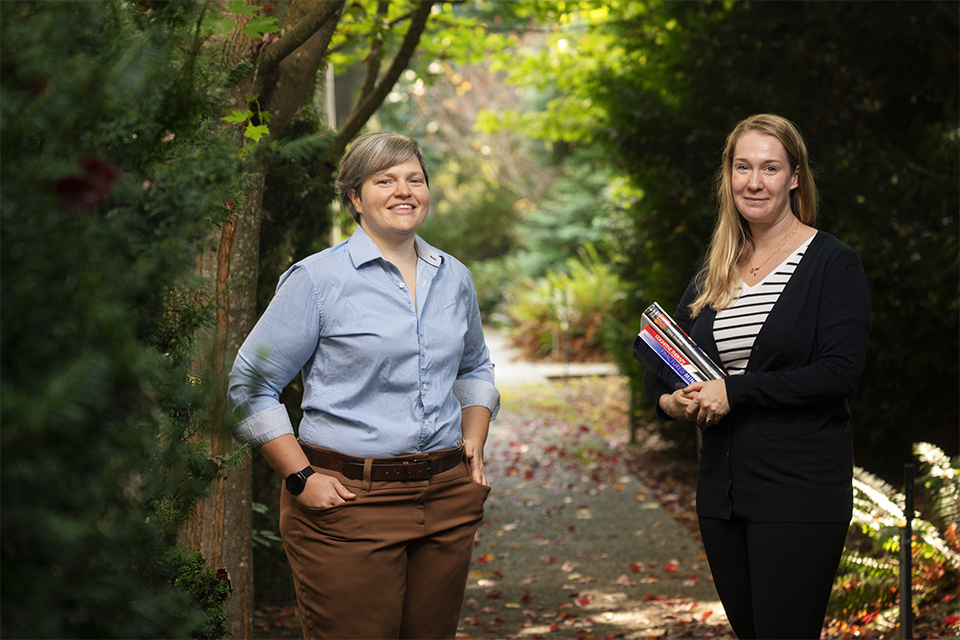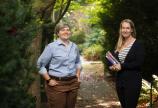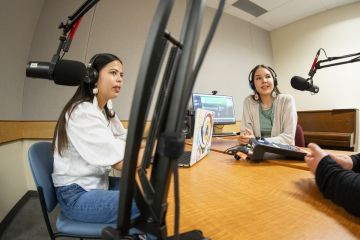New UVic fund advances community-engaged research
- Lisa Abram

Knowledge is power is a timeless adage and there’s proof in seven University of Victoria community-based projects that activate their results in local and global communities—from understanding the psychological impacts of COVID-19 in Canada to accessing drinking water and domestic hygiene in Malawi, Africa.
The Pathways to Impact: Mobilizing Knowledge Fund moves original research into real-world applications for the greatest impact. It demonstrates UVic’s leadership and vision for creating research to build healthier more sustainable communities. The inaugural UVic fund is one of a very few institutionally led knowledge-mobilization funding initiatives across Canadian research universities.
“This fund empowers University of Victoria researchers to transform ideas and research discovery into action and impact in communities that need it,” says Jen Kyffin, who leads community partnerships at UVic's Research Partnerships and Knowledge Mobilization. “Through partnerships and community engagement, we are co-creating solutions that tackle some of society’s toughest problems.”
The research projects align and advance UVic’s commitment to the United Nations Sustainable Development Goals (SDGs), which are a set of goals that “encompass equity issues for humanity—reducing poverty, hunger and inequality—along with sustainability issues that imperil the globe’s habitability.” The fund is among the first to directly target the SDGs.
Community engagement
With UVic’s stated commitment to the SDGs, everyone can benefit from participating in this community-driven effort to share research knowledge to improve the quality of their lives and their surrounding environment. One project explores the psychological impact of COVID-19 on Canadians.
“Many Canadians are struggling with their mental health during the COVID-19 pandemic. We believe it is important to share our findings with the general public to assure Canadians that their voices and needs are being heard and recognized—and that they are not alone,” says UVic psychology researcher Theone Paterson.
“We hope our research will help inform important stakeholders and policy-makers to better understand the needs of Canadians, and to empower Canadians to advocate for their mental health.”
Equitable access to knowledge
Each funded project must ensure the research is open access. Making research digitally available to the public at no cost is part of the larger conversation around the democratization of knowledge and the role that higher education institutions play in contributing to knowledge equity.
By ensuring open access to research knowledge, the UVic scholars have committed to sharing their findings to a lay audience widely in traditional, as well as new and engaging multimodal scholarly outputs, including infographics, photos and other digital assets, podcasts and interactive storytelling.
“We are committed to open scholarship as a model that improves the accessibility to results of original research from scholars at UVic. Knowledge mobilization in its multimodal publishing forms engages a varied audience and increases the dissemination of research widely and with long-term effects within the global economy,” says Inba Kehoe, head of copyright and scholarly communication at UVic Libraries.
The Pathways to Impact: Mobilizing Knowledge Fund is a joint initiative of the Office of the Vice-President Research and Innovation’s Research Partnerships and Knowledge Mobilization (RPKM) unit, in partnership with UVic Libraries.
Photos
In this story
Keywords: community, Indigenous, international, partnerships, research, sustainability, Research Partnerships Knowledge Mobilization, Office of the Vice-President Research
People: Jen Kyffin, Inba Kehoe, Theone Paterson, Brianna Turner





